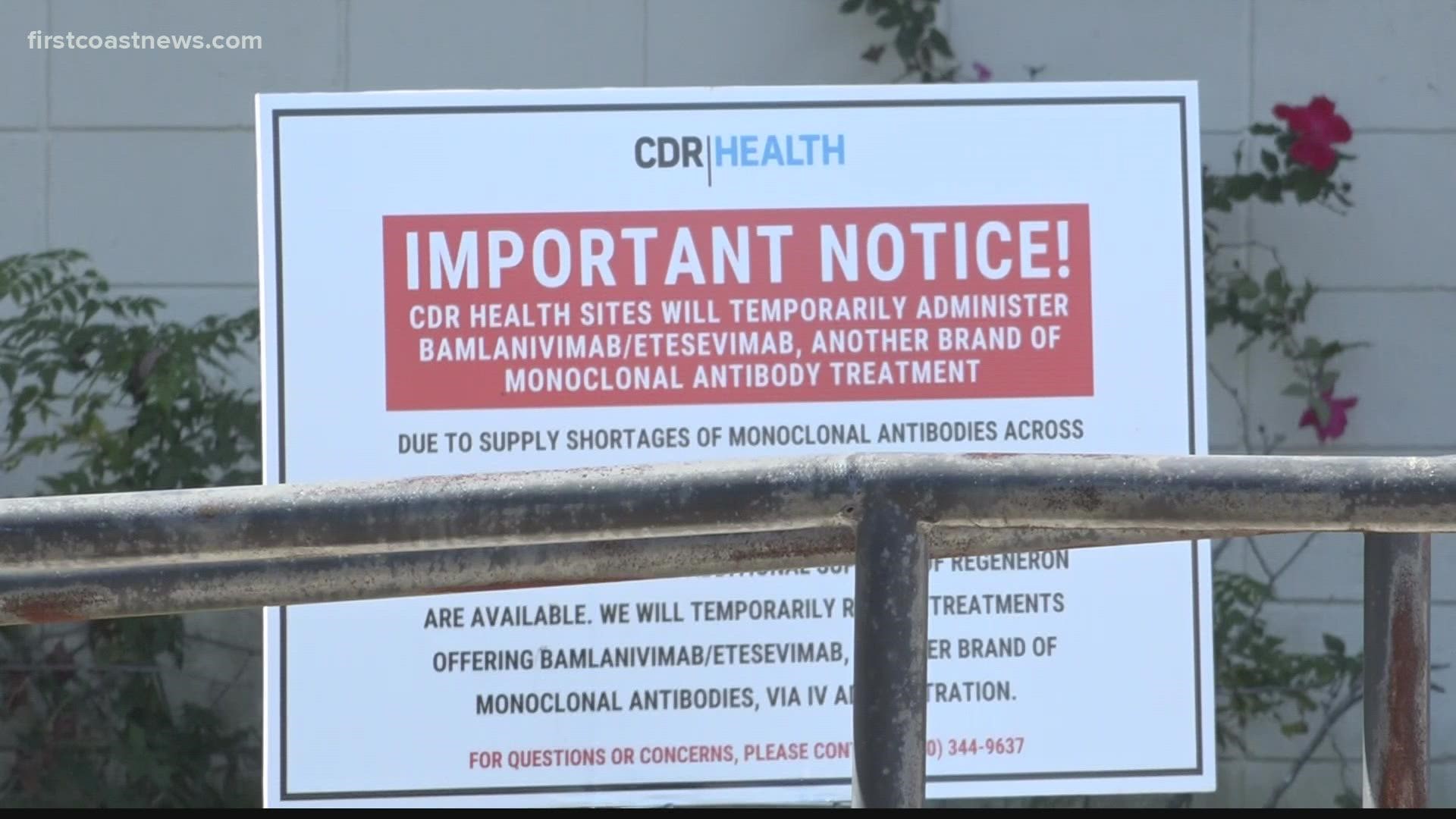JACKSONVILLE, Fla. — A tool in the fight against COVID-19 is in short supply, the Director of Infection Prevention at UF Health Jacksonville says.
“These monoclonal antibody treatments were a great treatment option for them in outpatient clinics and doctors offices and what have you," Chad Neilsen, Director of Infection Prevention at UF Health Jacksonville, said. "So to lose that is very concerning for for us."
He explained two of the three companies that produce monoclonal antibody treatments said they're not effective at treating the omicron variant.
"Generally, when a treatment becomes ineffective against a new variant, or a new variety of virus, is that something in it has mutated and changed, and what mutated and changed was what that treatment was targeting," Neilsen said.
The news from Eli Lilly and Regeneron caused the federal government to halt distribution of monoclonal antibodies last week until more data is available.
"It does make us a little bit worried in the medical community that we've lost a couple tools in the fight against COVID," Neilsen said. "Really, there's no other real effective treatment right now to treat Omicron, or really any other COVID other than supportive treatment for your symptoms. So, that's why we really encourage people, you know, get vaccine, get boosted."
The domino effect caused local antibody sites, like Jacksonville's, to limit its appointments. A spokesperson for the company that runs the site in Jacksonville said the treatment is also only offered now to those with proof of a positive test.
"We're still waiting and seeing how this [Omicron] is going to really play out in terms of the severity. I'm hopeful that this variant is not going to drive severe illness like delta did, and so being hopeful for that, it doesn't mean that we won't see other societal costs associated with Omicron infecting everyone," Neilsen said.
He said the antibody treatment won't hurt people with the new variant, but it likely won't help. The antibody treatment made by a third company largely isn't available in the United States, Neilsen explained.
"The kind of golden egg for all of the pharmaceutical industries is, you know, does it design a treatment that can withstand any variants change," he said.
According to Neilsen, companies are going back to the drawing board to try to create a treatment that fights all variants.

